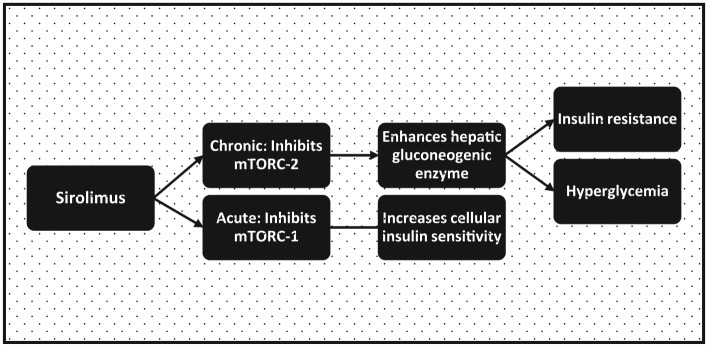Figure 2.
Biphasic effect of sirolimus: acute treatment enhances insulin sensitivity while chronic dosing causes insulin resistance.
Acute sirolimus treatment enhances insulin sensitivity by inhibition of mechanistic target of rapamycin complex 1 (mTORC1). It decreases serine phosphorylation of insulin receptor substrate-1, which in turn activates phosphatidyl inositol 3-kinase, and thereby sensitizes the cell to insulin action. Paradoxically, chronic administration of sirolimus produces hyperglycemia by overriding the inhibitory effect of insulin on the transcription of hepatic gluconeogenic enzymes.

